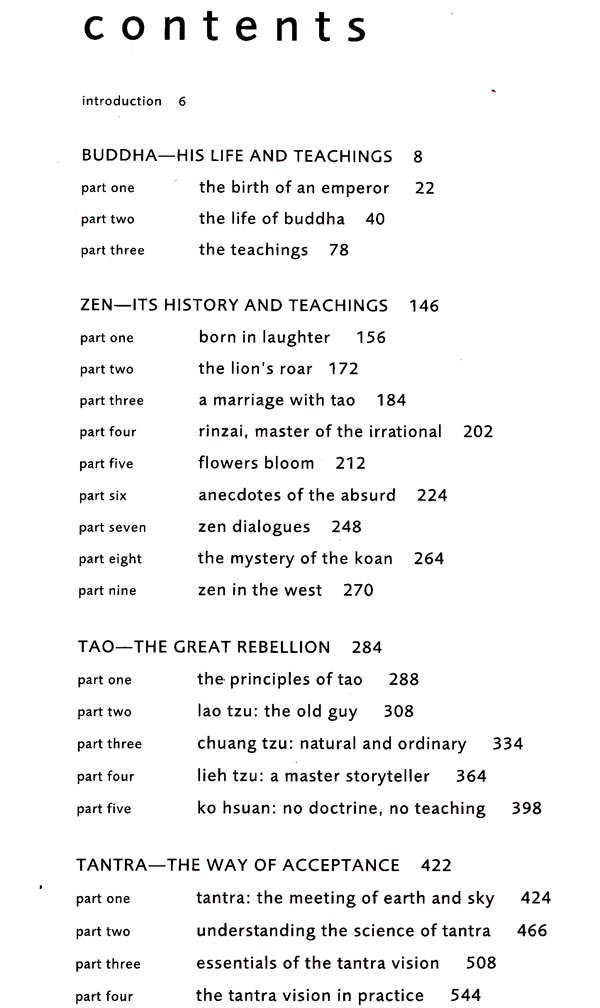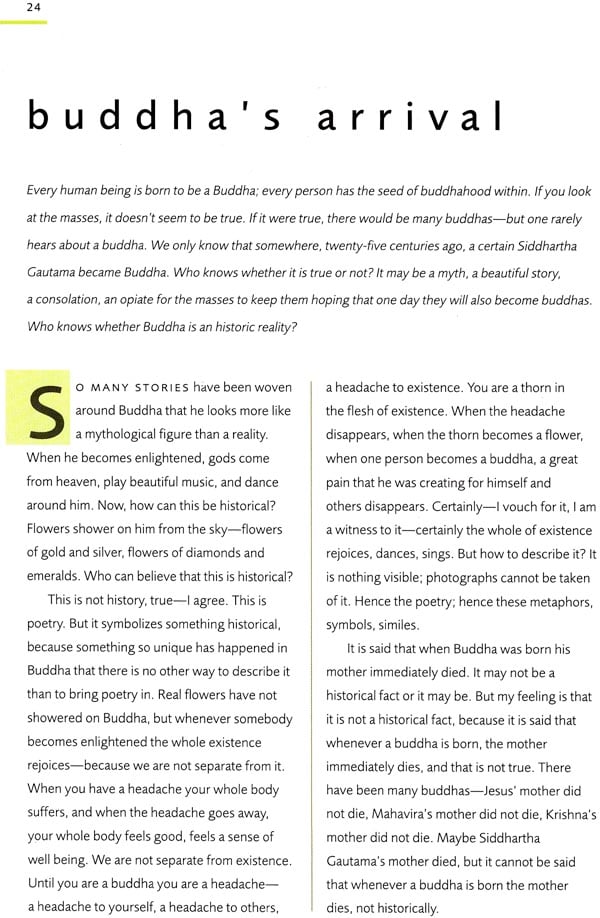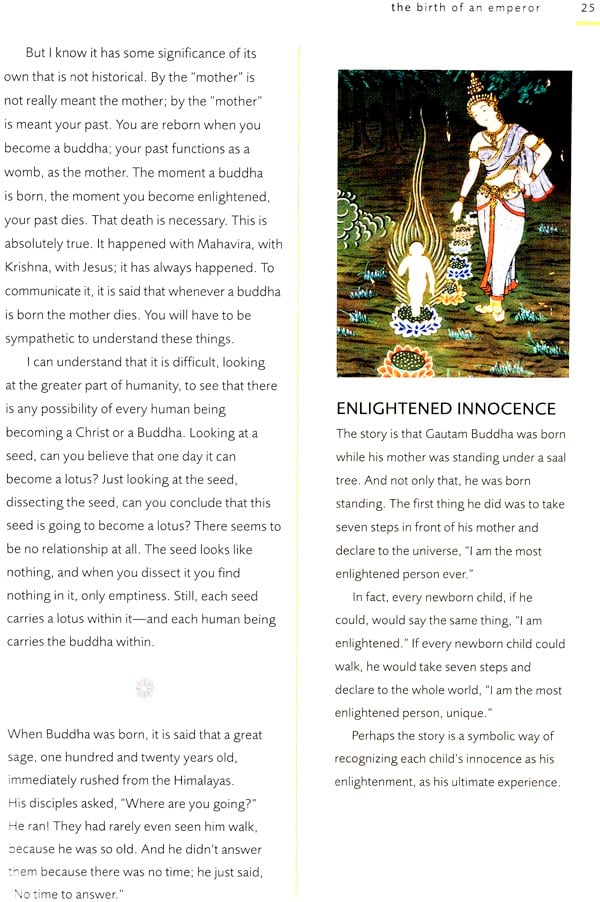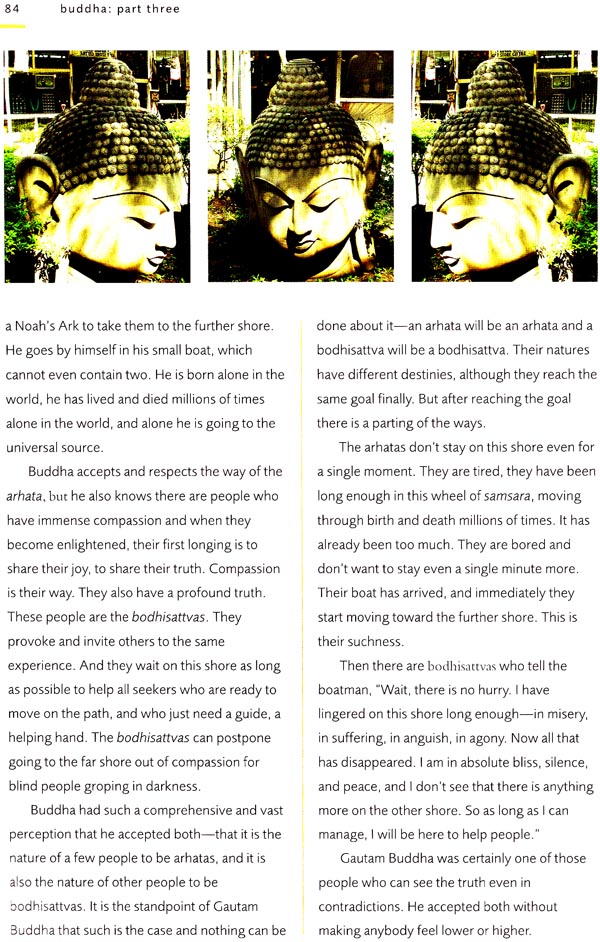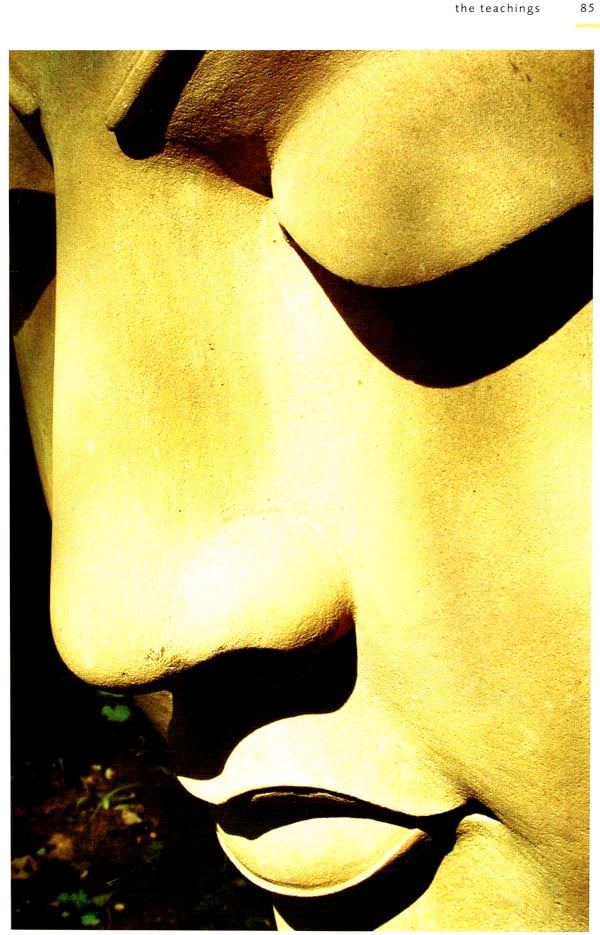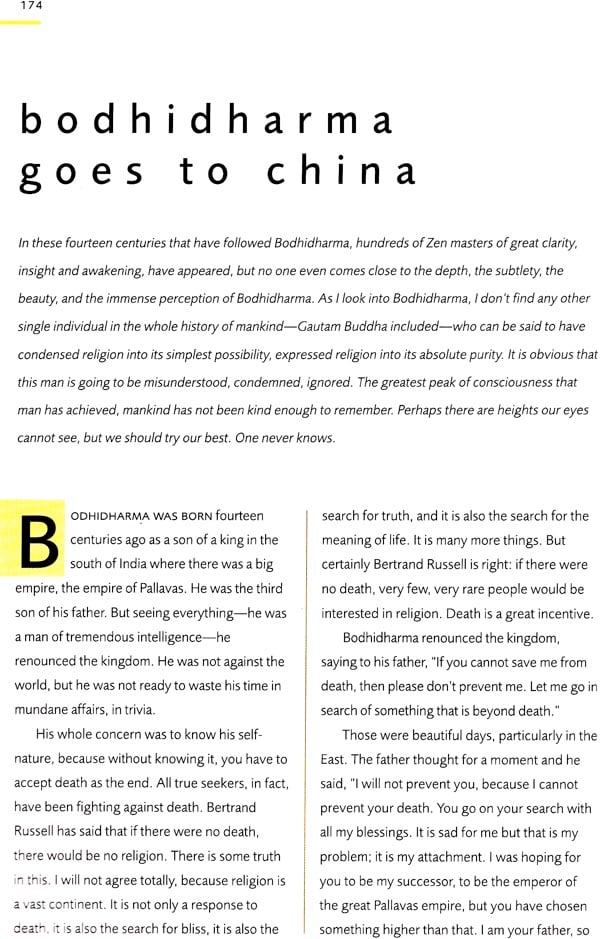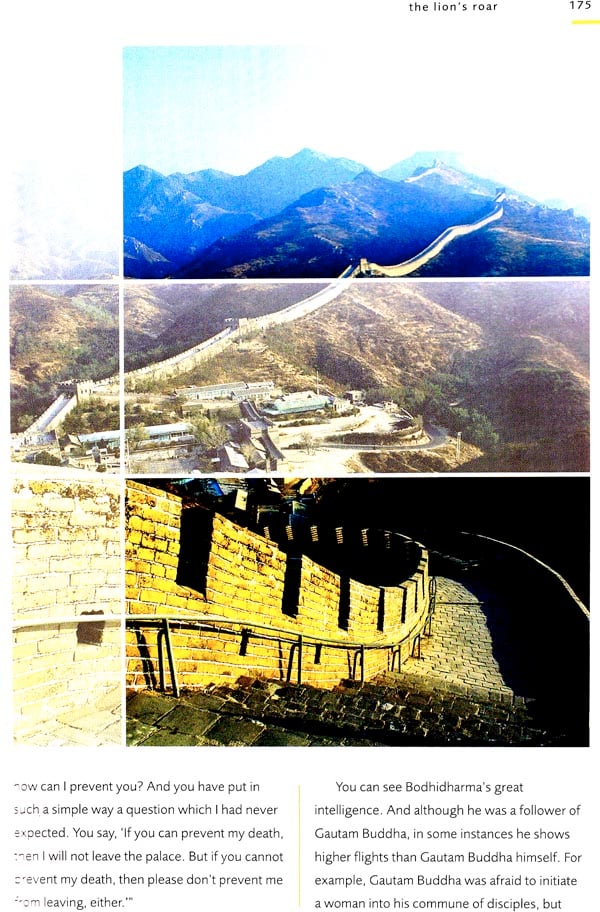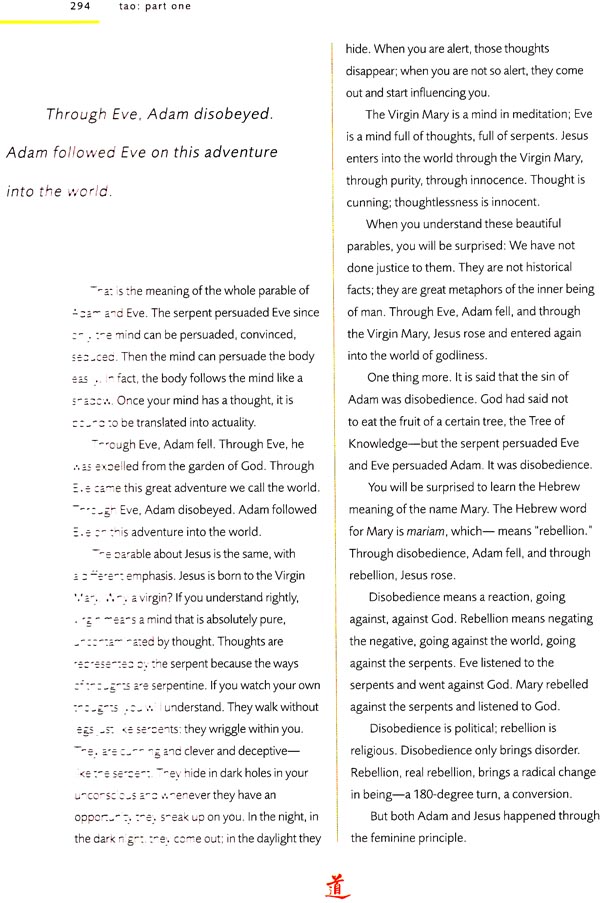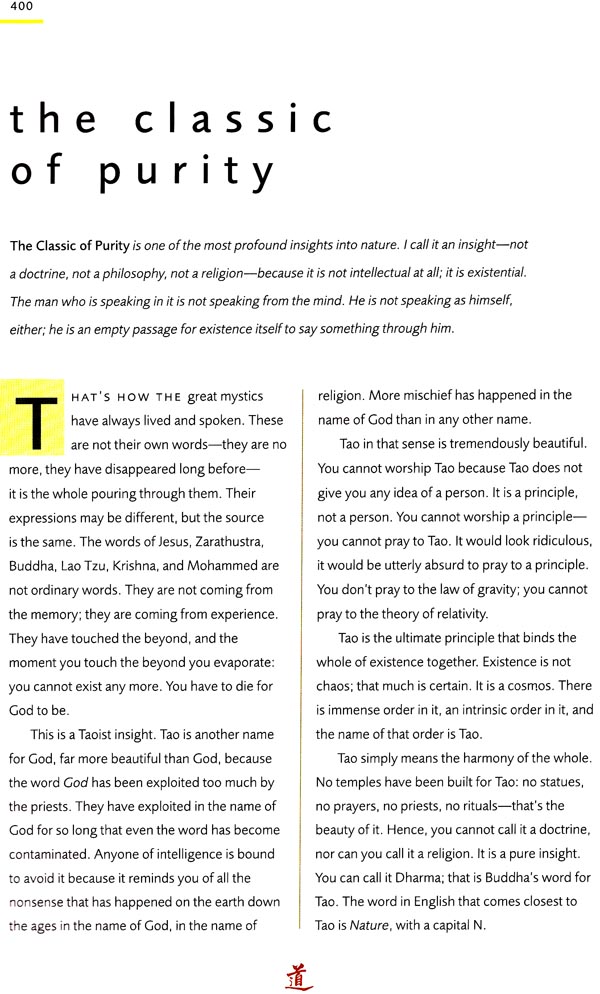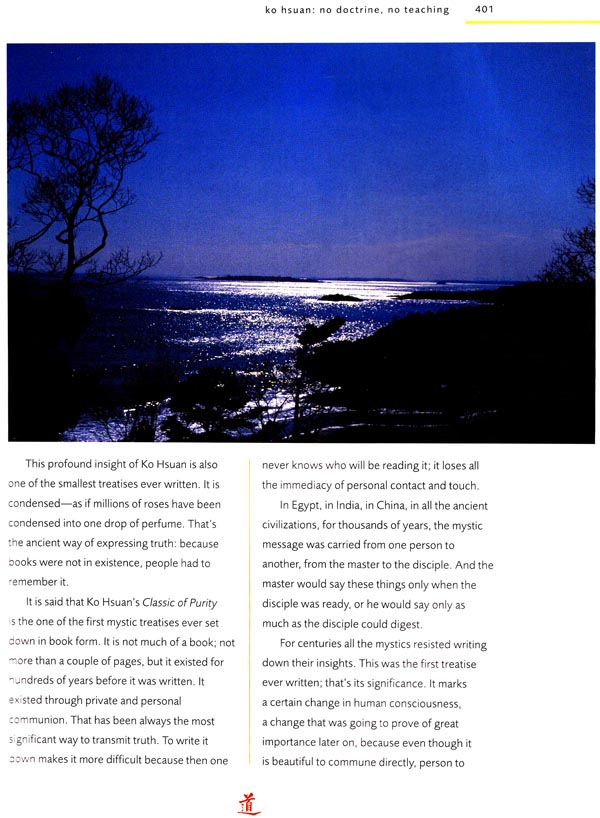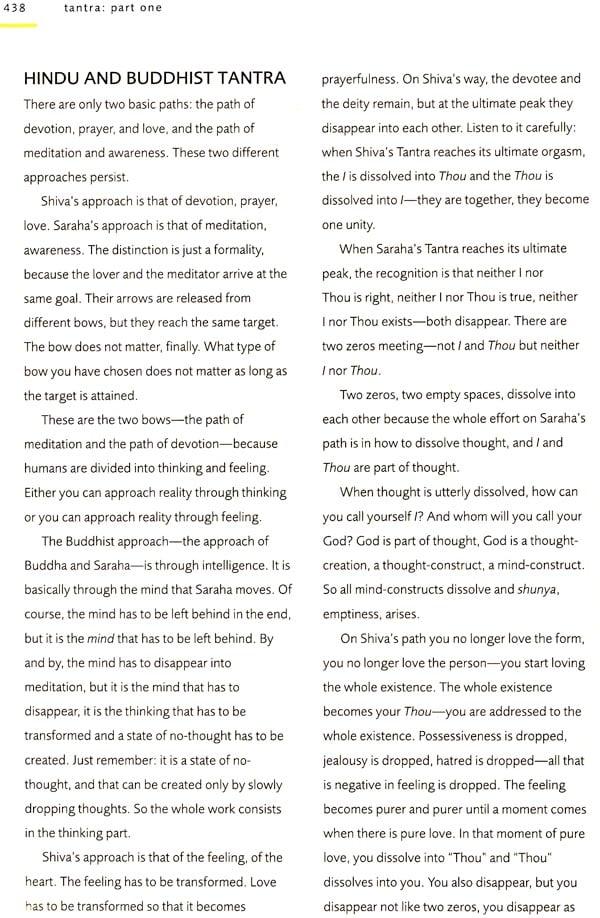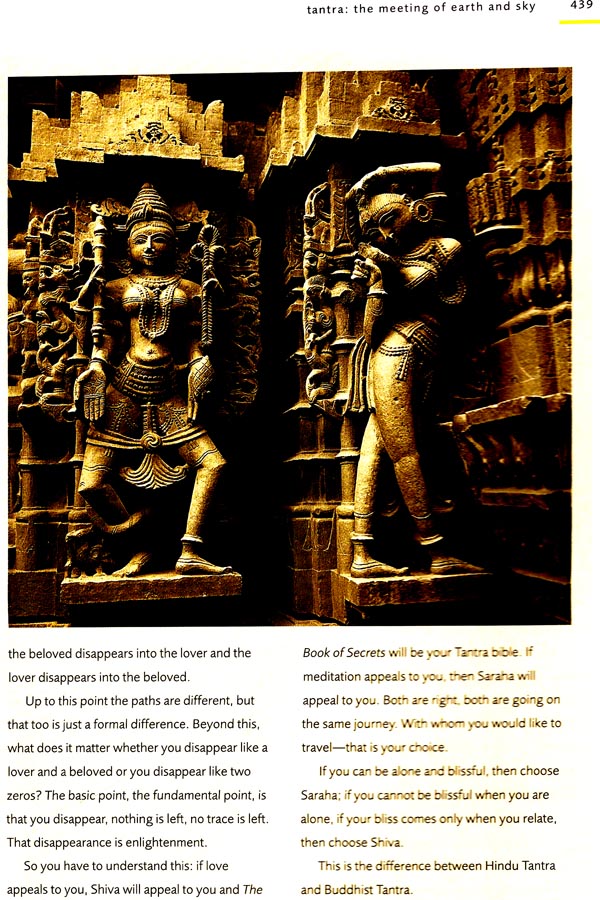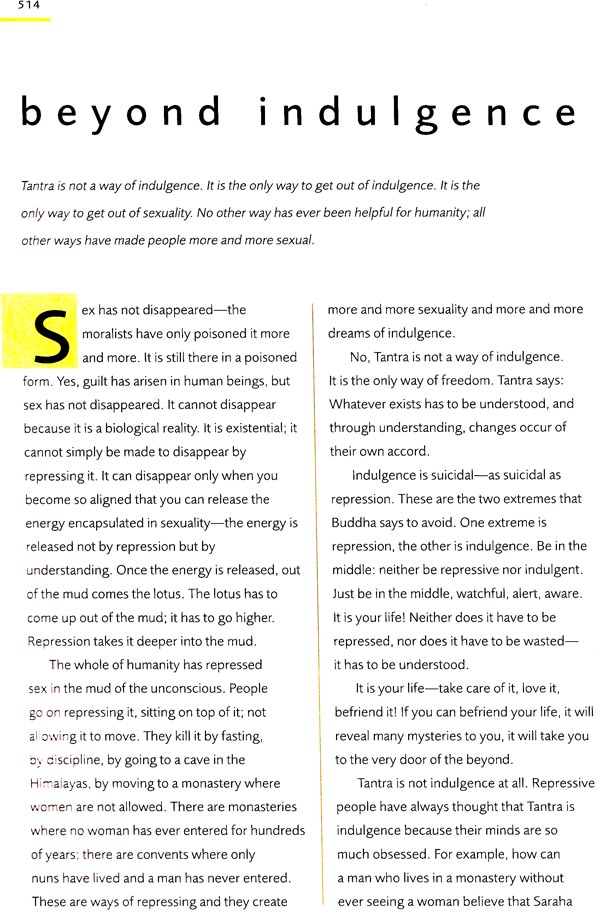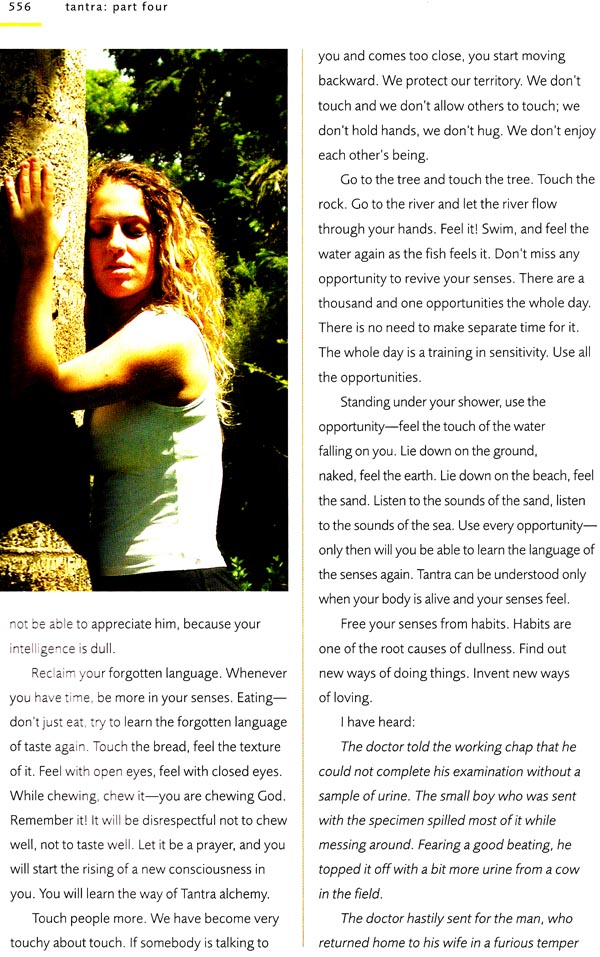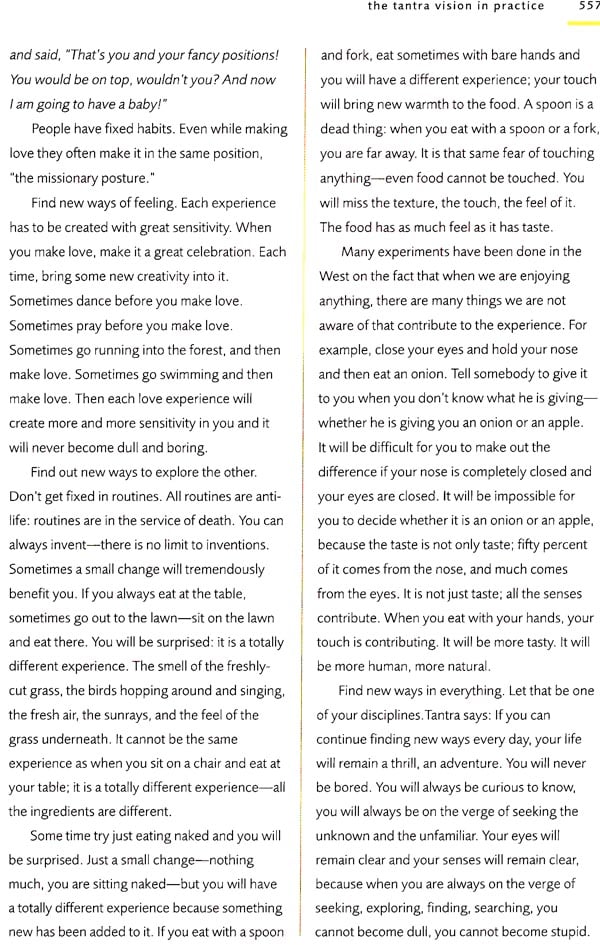
Buddha Zen Tao Tantra: The Spiritual Path
Book Specification
| Item Code: | NAQ706 |
| Author: | Osho |
| Publisher: | OSHO MEDIA INTERNATIONAL |
| Language: | English |
| Edition: | 2007 |
| ISBN: | 9781905695973 |
| Pages: | 508 (Throughout Color Illustrations) |
| Cover: | HARDCOVER |
| Other Details | 10.50 X 8.00 inch |
| Weight | 2.12 kg |
Book Description
ZEN Only once in the whole history of human consciousness has a thing like Zen come into being. It is very rare."
TAO With Tao you have to go it alone, you have to De alone-Tao says that if you impose a discipline on yourself, you will be a slave. The discipline has to arise out of your awareness, then you will be a master."
TANTRA This is the Tantra message: don't live a repressed Iife, otherwise you live not at all. Live a life of expression, creativity, joy. Live the way existence wanted you to live; the natural way."
This volume explores four major streams of Eastern wisdom as seen through the understanding of a contemporary mystic, Osho. In the course of his own search, Osho has deeply explored both the differences and the common concerns of East and West, psychology and philosophy, the religions of prayer, and the paths of meditation.
The depth and breadth of that understanding is apparent in these pages. Originally published separately as books on Buddha, Zen, Tantra, and Tao, this combined volume offers the reader a window into a broad spectrum of new possibilities, from the relaxed acceptance of Tao and Tantra to the disciplined awareness of Buddha and Zen. Each has something to offer the Western reader with an open mind and a taste for the challenge of breaking old patterns and exploring new possibilities.
Osho says: The Western mind can succeed as far as science is concerned, but it cannot succeed in religious consciousness. Whenever a religious mind is born, even in the West, it is Eastern. In Eckhart, in Boehme, the very quality of the mind is Eastern. And whenever a scientific mind is born in the East, it is bound to be Western.
East and West are not geographical. West means the Aristotelian, and East means the non-Aristotelian. West means equilibrium, and East means no equilibrium. West means the rational and East means the irrational. Tertullian was one of the most Eastern minds in the West. He said, "I believe in God because it is impossible to believe. I believe in God because it is absurd." This is the basic Eastern attitude: because it is absurd. No one can say this in the West. In the West they say that you should believe something only when it is rational; otherwise it is just a superstition.
Eckhart, too, is an Eastern mind. He says, "If you believe in the possible, it is of no consequence. If you believe in the argument, it is not religious. This approach belongs to science. Only if you believe in the absurd does something come to you that is beyond the mind." This concept is not Western. It belongs to the East.
Confucius, on the other hand, is a Western mind. People in the West can understand Confucius, but they find it difficult understand Lao Tzu. Lao Tzu says, "You are a fool if you are only rational. To be rational, reasonable, is not enough. The irrational must have its own corner to exist. Only if a person is both rational and irrational is he reasonable."
A totally rational person can never be reasonable. Reason has its own dark corner of irrationality. A child is born in a dark womb. A flower is born in the dark, in the underground roots. The dark must not be denied; it is the base. It is the most significant, the most life-giving thing.
The Western mind has something to contribute to the world-it is science, not spirituality. The Eastern mind can contribute spirituality, but not technology or science. Science and spirituality are complementary. If we can realize both their differences and their complementariness, then a better world culture can be born out of it.
Book's Contents and Sample Pages
